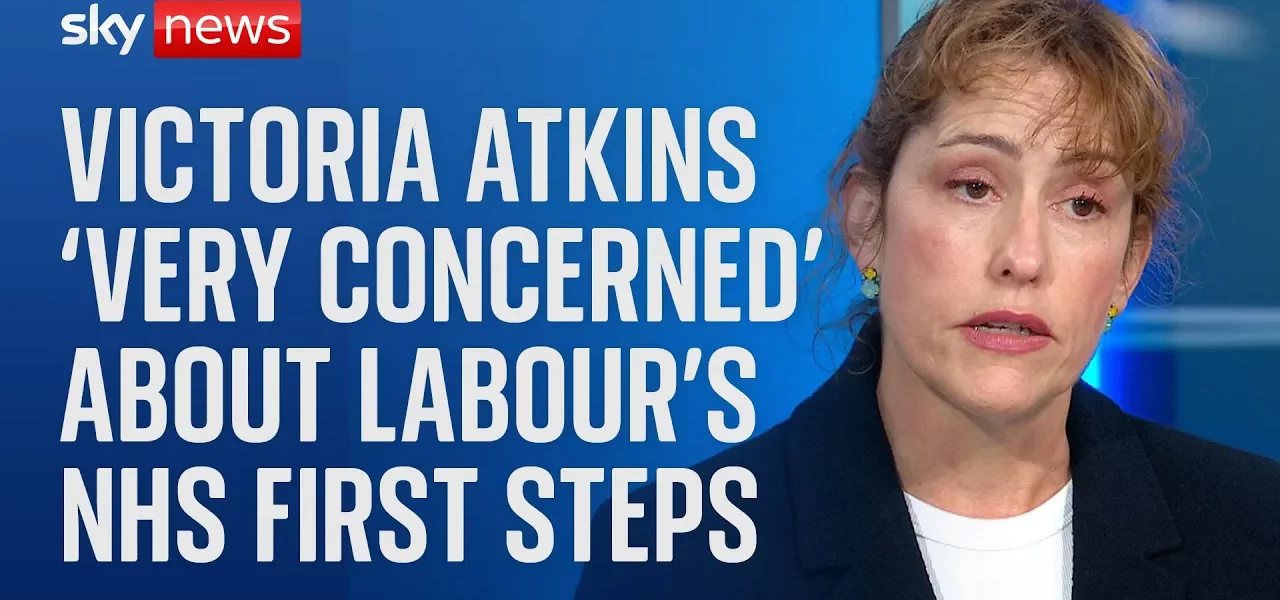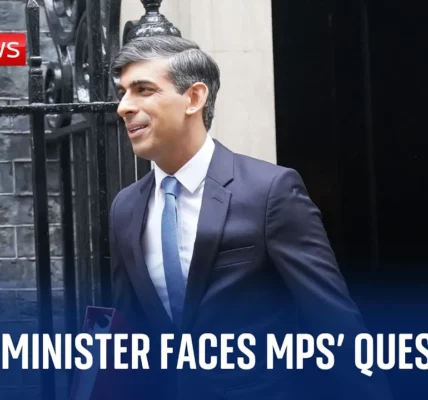The Current State of the NHS: Insights from Shadow Health Secretary Victoria Atkins

This article delves into the recent discussions on the NHS, highlighting the critical issues it faces, the proposed reforms by Shadow Health Secretary Victoria Atkins, and the implications of these changes for the future of healthcare in the UK.
Introduction
The National Health Service (NHS) has been a cornerstone of healthcare in the United Kingdom, yet recent reports indicate it is facing unprecedented challenges. Shadow Health Secretary Victoria Atkins has been vocal about the need for reform and investment in the NHS. In this discussion, she outlines the pressures the NHS is under, the necessity for strategic reform, and the contrasting approaches by different political parties. This article analyzes her statements and the broader implications for health policy in the UK.
Understanding the Current Challenges Facing the NHS
The NHS is currently grappling with a multitude of challenges that threaten its ability to provide quality care. Some of the key factors contributing to the NHS’s struggles include:
- Increased Longevity: As the population ages, more individuals are living with multiple chronic conditions, placing additional stress on healthcare resources.
- Societal Pressures: Issues such as the impact of social media on mental health, particularly among young people, are emerging as significant challenges for the NHS.
- Funding Limitations: The NHS has faced budget constraints that limit its ability to invest in new technologies and services.
These challenges necessitate a comprehensive approach to reform, which Atkins emphasizes is crucial for the sustainability of the NHS.
Proposed Reforms and Investments
Atkins has outlined a clear vision for reforming the NHS, emphasizing the need to marry investment with structural changes. Some of the proposed reforms include:
- Long-Term Workforce Plan: Developed in collaboration with NHS England, this plan aims to train the future workforce to meet the demands of a changing healthcare landscape.
- Productivity Plan: A budget allocation of £3.5 billion aims to enhance frontline technology and expand the NHS app, making healthcare more accessible.
- Embracing New Technologies: The integration of AI and voice-activated technologies is seen as a way to improve productivity and patient care.
These reforms are designed to ensure that the NHS can provide care efficiently and effectively, addressing both current and future needs.
The Critique of Labor’s Approach to the NHS
Atkins has been critical of the Labor Party’s approach to NHS reform, particularly in light of the recent report by Lord Darzi, which she argues does not adequately address the challenges facing the NHS. Key points of her critique include:
- Neglect of Productivity Reform: The proposed budgetary increases for junior doctors are seen as inadequate without corresponding reforms to enhance productivity.
- Failure to Acknowledge the Successes of the NHS: Despite the challenges, the NHS has made significant strides in treating more patients than ever before.
- Overlooking Wales: The lack of focus on the NHS outcomes in Wales, which has been governed by Labor for the past 25 years, raises questions about the party’s commitment to improving health outcomes across the UK.
Atkins emphasizes that constructive conversations about improving the NHS should be forward-looking rather than retrospective.
The Impact of the COVID-19 Pandemic
The COVID-19 pandemic has had a profound impact on the NHS, exacerbating existing challenges and creating new ones. Atkins notes that:
- The pandemic caused significant disruptions in routine healthcare, leading to delayed diagnoses and treatments.
- Staff morale has been adversely affected, with many healthcare professionals leaving the workforce.
- The NHS has had to adapt rapidly to meet the surge in demand post-pandemic, straining resources further.
Atkins argues that while the pandemic’s effects should be acknowledged, the report’s focus should also consider how the NHS can recover and thrive moving forward.
Conclusion
In summary, the NHS is at a critical juncture, facing numerous challenges compounded by societal changes and the lasting effects of the COVID-19 pandemic. Shadow Health Secretary Victoria Atkins presents a vision for reform that prioritizes investment and productivity improvements as essential for the future of healthcare in the UK. As discussions about the NHS continue, it is vital for all parties to engage in constructive dialogue aimed at ensuring the NHS can meet the needs of its patients. For more insights on healthcare reform and related topics, check out our articles on Healthcare Challenges in the UK and Future of NHS Policies.
“`




